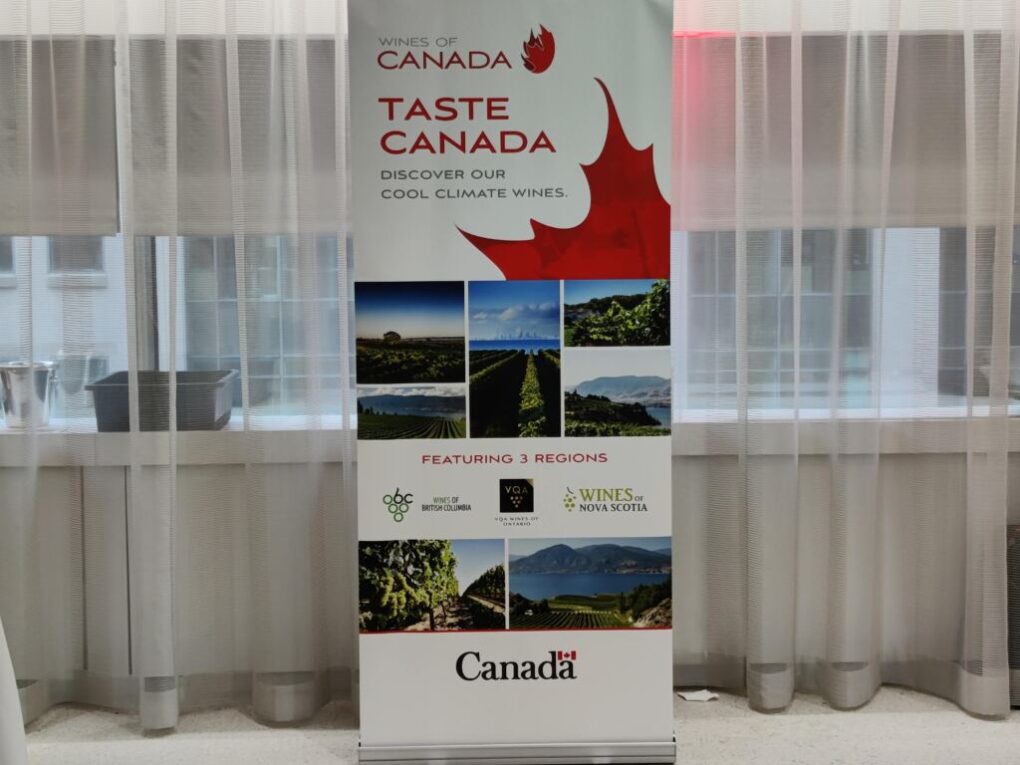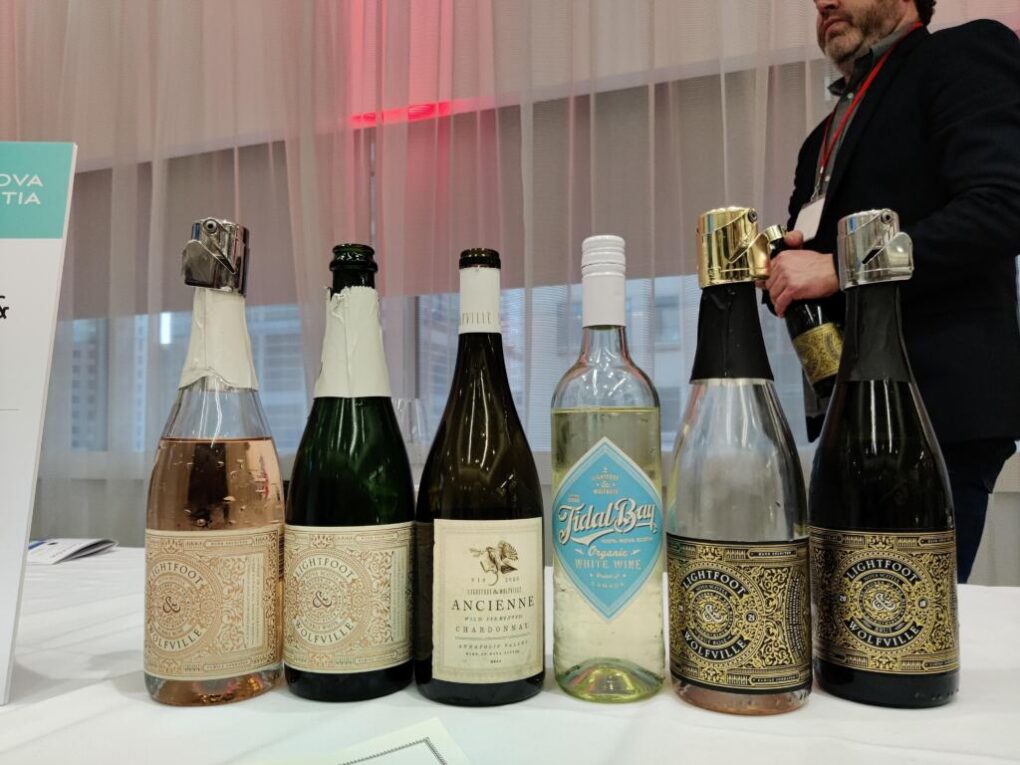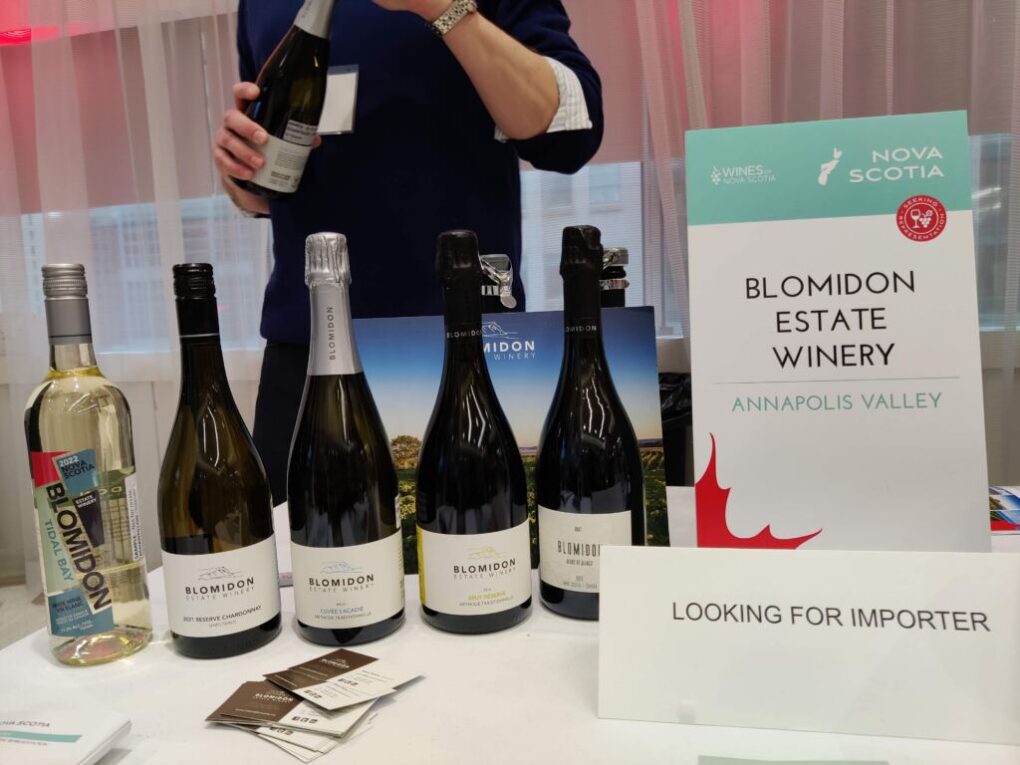
Winemaking in Nova Scotia began in 1611 when Louis Hebert of The Habitation in Port Royal, an early European settlement and residence of New France (roughly encompassing the regions of Ontario, Quebec, and the Hudson Bay) founder Samuel de Champlain, began planting French vines along the Bear River. This predates both winemaking in Ontario and British Columbia by more than 200 years, making Nova Scotia one of Canada’s and the New World’s first wine regions.
Nova Scotia enjoys a continental climate with temperatures moderated by the various bodies of water surrounding it, including the Gulf of Saint Lawrence, the Atlantic Ocean, the Gulf of Maine, and the Bay of Fundy. The flow of tides from this Bay (situated between Nova Scotia and New Brunswick), into the Annapolis Basin and the Bear River, shield the region from temperature extremes. This helps to create a microclimate conducive to winemaking. The region, characterized by warm and dry, sun-drenched summers and crisp and cool autumns, provides ideal conditions for cultivating approximately 19 international and hybrid varietals. These include white grapes like Riesling, L’Acadie Blanc, New York Muscat, and Chardonnay, and red grapes such as Leon Millot, Baco Noir, Pinot Noir, and Marechal Foch that are harvested to produce fresh, vivacious, and aromatic sparkling, still white and red, and sweet wines with a vibrant acidity, and a complex flavor profile that form the identity of Nova Scotian wines.
There are currently more than 20 wineries sourcing grapes from approximately 70 growers cultivating roughly 800 acres of vineyards within Nova Scotia’s seven wine territories. These include Annapolis Valley, Avon Valley, Bear River Valley, Gaspereau Valley, LaHave Valley, Malagash Peninsula, and Marble Mountain. The Tidal Bay appellation, used to distinguish wines made within these territories, was established in 2012.
Two Annapolis Valley-based wineries, Lightfoot & Wolfville Vineyards and Blomidon Estate Winery use environmentally friendly methods to produce wines that reflect the unique character of Nova Scotian wines.

Family-owned-and-operated Lightfoot & Wolfville Vineyards is situated in Annapolis Valley. The Lightfoot family are eighth-generation farmers who established the winery in 2009 with a focus on Demeter Canada-certified biodynamic and Ecocert Canada-certified organic small-production wines. The winery’s name represents the union between the family (Lightfoot), and their hometown (Wolfville). The winery is currently owned and operated by Jocelyn, a certified sommelier, and Michael, a seventh-generation local farmer.
Lightfoot & Wolfville Vineyard adopts minimal-intervention approaches to winemaking to preserve the integrity of the soil, vines, and grapes for posterity. Lightfoot & Wolfville’s first vintage overseen by wine consultant Peter J. Gamble was released in 2015 and reflects the winery’s commitment to creating wines reflective of the Annapolis Valley terroir. The 40 acres of vineyards on hillside slopes by the Minas Basin toward the western end of the Bay of Fundy are dedicated to the cultivation of Pinot Noir, Riesling, Chardonnay, and other varietals that thrive in the cooler climate of the Annapolis Valley. A consistent saltwater breeze coming from the Basin delays the onset of frost and moderates the temperature in the winter months, allowing the grapes to ripen slowly and develop a perfect balance of acidity, crispness, structure, and concentrated fruit flavors at relatively low sugar levels.

A wine from the portfolio selection that I particularly enjoyed:
Lightfoot & Wolfville Vineyards Blanc de Blancs, Brut, 2018
100% Hand-harvested Chardonnay
Fresh and lively, with a balanced acidity and minerality, a fine and persistent mousse, and notes of ripe citrus and orchard fruits, and hazelnuts.
Lightfoot & Wolfville Vineyards 11143 Evangeline Trail, Wolfville, Nova Scotia B4P 2R1 +1 902-542-7774 lightfootandwolfville.com

Blomidon Estate Winery, located along the Minas Basin near Canning, in Annapolis Valley, has been under the ownership of the Ramey family since 2007. The winery focuses on using only locally grown varietals like Seyval Blanc, L’ Acadie Blanc, Chardonnay, and Baco Noir to produce wines that reflect the distinctive seaside terroir. Winemaker Simon Rafuse, vineyard manager Harold Gaudy, and the Ramey family work together using minimally invasive and environmentally sustainable processes whenever possible to make wines that are expressive of their grape composition, whether they be fresh and aromatic, with a lively acidity and a balanced fruit flavor profile, or elegant and more mineral-driven, with greater structure and complexity,

A wine from the portfolio selection that I particularly enjoyed:
Blomidon Estate Winery, Cuvée L’Acadie Brut, ‘Méthode Traditionnelle,’ NV
100% Hand-harvested L’Acadie Blanc
Crisp and elegant, with harmonious notes of lemon, grapefruit, green apple, and toast.
Blomidon Estate Winery 10318 Highway 221, Canning NS B0P1H0
+1 902-582-7565 blomidonwine.ca

Be First to Comment